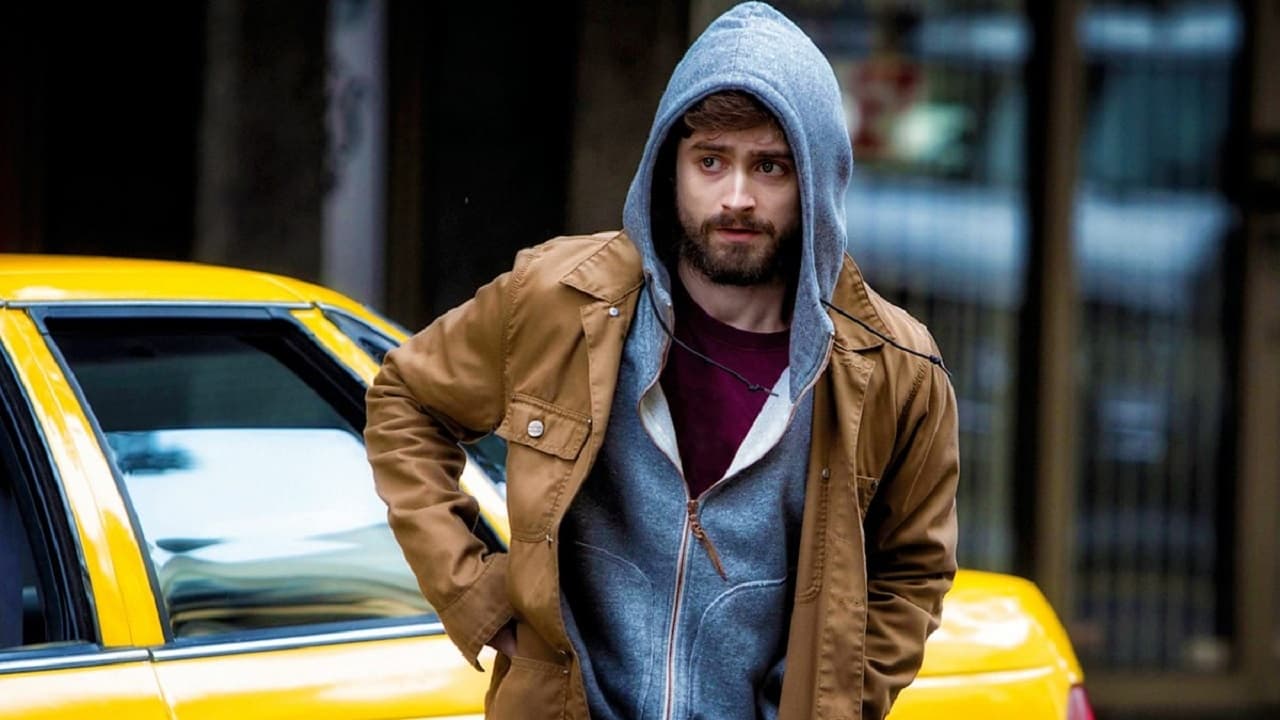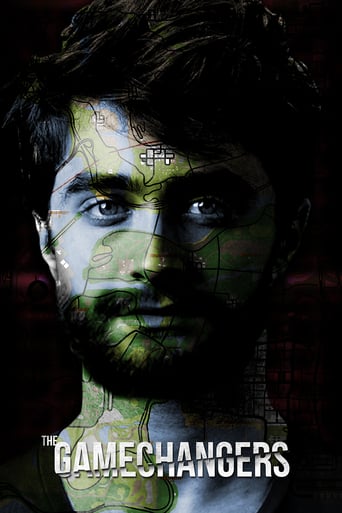

I think this is a new genre that they're all sort of working their way through it and haven't got all the kinks worked out yet but it's a genre that works for me.
... View MoreSorry, this movie sucks
... View MoreAbsolutely amazing
... View MoreIt's a good bad... and worth a popcorn matinée. While it's easy to lament what could have been...
... View MoreI liked that the movie did not go too hard one way or the other. It is obviously biased towards the game company, but not too much. Bill Paxton makes a great righteous lawyer trying to impose his own moral values on the world and Daniel Radcliffe plays well a Steve Jobish kind of company CEO that drives everyone insane, but also toward doing good work. However, the lack of support from the real protagonists and the desire to make the story more dramatic than it actually was hurt the film.I was always outraged by the hypocrisy that surrounded GTA. The film is trying to put the violence and the sex in the game in the same boat, but it actually wasn't like that at all. Nobody said anything about the violence in the game (or the fact that, for example, you can fly a plane into a building), but there was huge outrage about the Hot Coffee mod who enabled previously disabled sex scenes. Hillary jumped immediately on the righteous wagon because of the sex. No wonder Bill left her.I think that the biggest problem of the film was that it didn't know what it was. For a drama it was a bit lackluster and under budget, considering the many stories surrounding the GTA franchise in general. Also, I have worked for people like Radcliffe's character, people that can hug you one day and fire you another, based only on their personal mood. It's not cool. The developers themselves and their side of the story are completely missing from the film.For a documentary it was inaccurate, changing event order and amassing many of them in an unrealistic time interval. Even my wife, who is unaware of the reality of the game, noticed that some things seemed to happen in weeks and other in years, yet somehow at the same time.Bottom line: I liked watching it and I suppose I would have not wanted to miss it, but I can't recommend it for anything else other than good acting.
... View MoreWhen I read what this was all about I wanted to watch it, as it's a question that's been in our family for years, are video games any good for youngsters, if played to excess.I found this to be watchable enough, the acting was particularly good, I just found it boring. There were times when it transformed into melodrama, the court scenes were tedious.I find Jack Thompson's argument about the morality of the video games a little rich, I'd have thought his argument would have been initially about the ease at which you can obtain a firearm stateside. It poses an interesting argument.I found it quite strange that Daniel Radcliffe accepted this part, good though he was it could perhaps have been written for anybody. He's too accomplished an actor for so anonymous a part.
... View MoreThe basic plot of THE GAMECHANGERS is straightforward, as crusading Florida lawyer Jack Thompson (Bill Paxton) takes on the video-game producers, notably Rockstar and its CEO Sam Houser (Daniel Radcliffe), in the belief that video-games have a destructive effect on child psychology. The inspiration for the case comes from the killing of three police officers in Alabama by teenager video-game player Devin Moore (Thabo Rametsi).Owen Harris's production is built round a series of oppositions. Thompson believes that video-games are destructive; Houser advocates free choice. Rockstar's lawyers believe that Houser is exploiting the case for his own ends, and mount a series of counter- accusations. There is a nationalistic subtext running throughout the film contrasting the more liberal Brits (led by Houser) with the more overtly moral Americans, whose censorship laws are apparently far more stringent than those practiced within the United Kingdom. On the other hand Thompson resent Houser and his fellow-Brits for making money out of the American market with little concern for family values.As the drama unfolds, however, we discover that its focus centers more and more on the consequences of extremism. Houser is so obsessed with novelty, with producing the ultimate video game, that he resists any possible criticism from his fellow-workers. Likewise Thompson's obsession with indicting Rockstar, in the belief that God is on his side (the side of 'right' in his view) that he does not realize the destructive effect his actions have on himself and his family. Although loyally supported by his wife (Fiona Ramsay), he might have been better advised to pause and consider the plight of son Johnny (Garion Dowds). Director Harris stresses the links between the two protagonists through repeated shots showing their faces in close-up superimposed on video-game action. Much of the action takes place in darkness, or semi-darkness illuminated by computer screens. We are in a nether-world, one in which light seldom enters. Houser talks a lot about the "adaptability" of his new video-game; in truth both he and Thompson are profoundly un-adaptable insofar as they cannot see any other alternative to life than the contrasting causes they espouse. At one point Thompson asks the question "Who are you?" in close-up; we might interpret that statement as a metaphor for the entire film in which human beings are deprived of their identities.In the end Harris refuses to take sides; on the contrary, he shows how both protagonists are ultimately destroyed. They might have enjoyed "success" in terms of achieving their various ambitions, but at what cost? Perhaps the only way out would have been to follow the example of Houser's colleague Jamie (Joe Dempsie) and leave the whole affair behind. Yet this is something that the obsessive protagonists cannot do.
... View MoreI'm usually a big fan of most of the BBC's output but I find it impossible to understand why when one side in the drama wanted nothing to do with it that they decided to proceed anyway and they did so with none of the explanation or background that would've humanised the staff of Rockstar Games.To deem the drama factual is laughable, almost every person depicted was a characterisation in one way or another (sharp-suited, curt lawyers / scruffy game developer / insomniac gamer) In fact so little character development occurs I don't even think it's correct to classify it as a drama.I think the biggest failure was the disconnect between the over- clarifying language used throughout and the areas where the message was lost because of a lack of consistency with that format Namely that at no point was it spelled out that the game was not being sold to children but being purchased by adults. They were happy to allow the opposition to repeatedly (to the point of nausea) claim that the game was corrupting their children but never in their otherwise blanket exposition state that the game wasn't aimed at or allowed to be legally sold to children.There were things it did well such as stating that no firm links exist between violence in media and reality and depicting the difficulties faced by the opposition lawyer who brought the case and his family however these failed to make up for what was otherwise a rushed overview that failed to provide sufficient justification about Rockstar Games' motives or goals. How did they expect they could create a meaningful drama by trying to glean information from court documents and articles rather than speaking to actual people? I suspect the irony of the BBC failing to understand how a "factual" drama about a video game world without the input of any "real" individuals is lost on them.
... View More